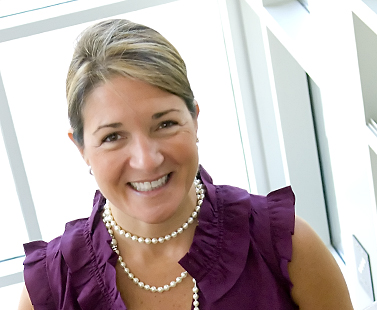Public health program to help dentists and dental hygienists identify eating disorders
Recovery Act funds COPH study and pilot training program
A USF College of Public Health researcher has received a highly competitive National Institutes of Health grant to create and evaluate a web-based training program to help dentists and dental hygienists identify patients with eating disorders and refer them for treatment. Rita DeBate, PhD, associate professor in the Department of Community and Family Health, was awarded the two-year NIH Challenge Grant through the American Recovery and Reinvestment Act (ARRA). The ARRA funding is expected to be $985,517 over two years.
NIH AARA Challenge Grants were designed to spur new areas of research and trigger an influx of research dollars into communities across the nation starting in September 2009. With NIH receiving 20,000 challenge grant applications, competition was called “fierce.” While Florida universities received 177 awards through the ARRA, only a few were awarded in Florida.
Eating disorders, such as bulimia and anorexia nervosa, have potentially serious health consequences that can contribute to, or cause, death, according to the U.S. Center for Disease Control’s National Center for Health Statistics. Most people diagnosed with an eating disorder are under age 25, but deaths from eating disorders are highest among those between the ages of 25 and 64, NCHS statistics show.
Early identification, referral, and treatment significantly increase the likelihood of recovery, said Dr. DeBate. “Oral health providers play a fundamental role in the early detection, patient-specific oral treatment, and referral for care of eating disorders, because they are often the first health professionals to observe overt health effects. However, few dentists and dental hygienists are practicing this important clinical responsibility.”

Rita DeBate, PhD, received one of three highly competitive NIH ARRA Challenge Grants in Florida.
Over the two NIH-funded years, Dr. DeBate, the project’s principal investigator, and co-principal investigator Herbert Severson, PhD, senior research scientist at Oregon Research Institute, will customize their prototype web program, “Eating Disorders and Oral Health,” for use within dental and dental hygiene academic training programs. Adaptation of the prototype will be guided by input from dental and dental hygiene faculty and directors, an expert consultant panel, previous pilot data, and current e-learning methodology. Evaluation of the adapted web-based training program will involve 12 dental schools and dental hygiene programs across the country.
Damage to teeth, gums and oral tissue from disordered eating behaviors can begin as early as three months after excessive dieting or vomiting.
“The state of one’s oral health can be considered an early warning system for numerous health issues, including eating disorders,” Dr. DeBate said. “Consequently, oral health professionals can be among the first to observe the effects of eating disorders, but may not intervene for a variety of reasons. For instance, they may lack training and skill in identification of oral and physical symptoms of eating disorders, such as signs of malnutrition, dehydration and vomiting.”
Dr. DeBate’s previous research, which included focus groups with dentists and dental hygienists, revealed that they often felt uncomfortable approaching patients on sensitive topics such as an eating disorder.
“They realize that this is an important oral/systemic health issue, but also noted that they lacked confidence in patient approach, communication, and referral for treatment,” Dr. DeBate said. “In part, this program aims to improve skills in patient communication regarding this sensitive topic.”
Many dental health professionals also felt they could not start an oral treatment program with patients who, because of the secretive nature of their behavior, might be denying their eating disorder, she said. “Treatment can only begin when patients are ready for it. So assessing patient readiness to address disordered eating behaviors and secondary prevention are linked.”
Dr. DeBate and colleagues hope that the training program will increase dental professionals’ capacity to deliver eating disorder-specific secondary prevention and, ultimately, increase the rates of early treatment for people with eating disorders.
– Story by Randolph Fillmore, Florida Science Communications
– Photo by Eric Younghans, USF Health Communications

